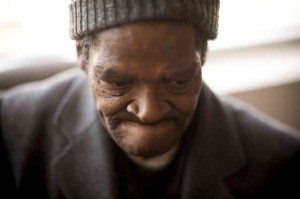Depression is an extremely common mental health problem today. Many people struggle with it even though they haven’t even realized they have it. Although negative feelings are natural and occasionally unavoidable, you should be on the lookout for the kind of consistent negativity that signals the onset of genuine depression. Read on to learn about how to spot depression a few basic warning signs.
How To Spot Depression & The Warning Signs of Depression
 Sadness is one of the most obvious indicators of depression, but also one of the least reliable. You can get sad for any reason, or even for no reason at all, and it does not necessarily mean you are depressed. Still, it’s worth it to consider how often you feel sad versus how often you feel happy when you’re trying to determine if you’re depressed.
Sadness is one of the most obvious indicators of depression, but also one of the least reliable. You can get sad for any reason, or even for no reason at all, and it does not necessarily mean you are depressed. Still, it’s worth it to consider how often you feel sad versus how often you feel happy when you’re trying to determine if you’re depressed.
In a similar vein, take note of how often you cry. Tearing up is, again, not a sure-fire indicator. Different people naturally feel emotions at different levels of intensity, so crying frequently may not be that unusual for you. What you want to watch out for is repeated crying sessions that you find difficult or impossible to explain, even to yourself.
A lack of passion is a common experience when you’re dealing with depression. Think back over your recent actions and ask yourself if you’ve been as interested in the things you love to do lately. If you’re finding it hard to stay focused on activities that you used to find thrilling, watch out.
Depression can often cause dramatic changes in your appetite. This can go both ways: If you’re depressed you may find yourself eating more than you usually do or less. Look at the sorts of foods you’re eating and the amounts you consume. If you can tell that there have been significant changes, be warned.
Sleeping is another basic human activity that gets harder when you get depressed. Like your diet, your sleep habits can be changed in either direction by depression. You might need to get much more sleep than you used to, or you may find yourself dealing with insomnia.
Fatigue and a general lack of energy are common symptoms of depression, and they’re not always tied to any sleep changes you might also be experiencing. These feelings are difficult to diagnose, though, because it’s so hard to detect gradual changes in this area. Ask a trusted friend if you seem less energetic than you used to.
Recognizing the Subtle Signs of Depression
“Despair” might seem like a melodramatic term, but spot depression can make it real. If you find yourself being overwhelmed by feelings of hopelessness, be aware that depression could be the root cause. This symptom makes a good counterpoint to the above-mentioned fatigue. If you have plenty of energy but can’t seem to motivate yourself to use it, you may have a problem.
Finally, one of the most subtle symptoms to spot depression is a lack of concentration. It’s not that it’s hard to tell when you can’t concentrate; it’s the fact that any number of other factors can produce this effect. Still, if you’re experiencing several of the other symptoms listed here and you also have a hard time focusing, you may well be suffering from depression.
Besides being a tough condition to treat, depression is also a hard condition to diagnose. Hopefully, the information provided here will give you a better handle to spot depression on your own and how they might (or might not) signify a real problem with depression. Above all, don’t suffer in silence. If you’re experiencing several of the symptoms listed here on a regular basis, consult a medical professional as soon as possible.